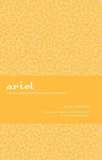Women Writing Nationhood Differently: Affiliative Critique in Novels by Foma, Atta and Farrah
Keywords:
affiliative critique, women writers, nationhood, gender, cross-generational transmissionAbstract
The focus of this article is on a discernible trend in contemporary African writing, which is the fiction by mainly [though not exclusively] diasporic African women authors either explicitly or implicitly claiming their nation for its women by highlighting the roles that women play in reimagining the (often shattered, or scattered) nation, or the society and land from which they have been separated. The article uses the concept of “affiliative critique” to indicate that these women writers hold the nation to account even as they indicate their continuing allegiance to it in their texts – despite the authors’ physical relocation to other countries and continents. The element of critique is strongly gender-inflected and indicates that gender injustice can be seen as one of the causes as well as one of the symptoms of broader failures of the nation state in the African country of the authors’ origins. The essay juxtaposes novels by three of the newer writers, viz. Aminatta Forna (focusing on Ancestor Stones, 2007); Sefi Atta (for Swallow, 2010) and Cristina Ali Farah (for Madre Piccola 2007 – using here the English translation titled Little Mother, 2011) – texts that focus, respectively, on Sierra Leone; Nigeria and Somalia.
While sufficiently different in what they portray, these novels serve as examples of the powerful and vividly imagined delineations of their troubled nations contemporary African authors provide and are fine illustrations of the discerning social analysis, searing critique and self-criticism, and ethical insights that the continent’s trend-setting women writers are producing.


